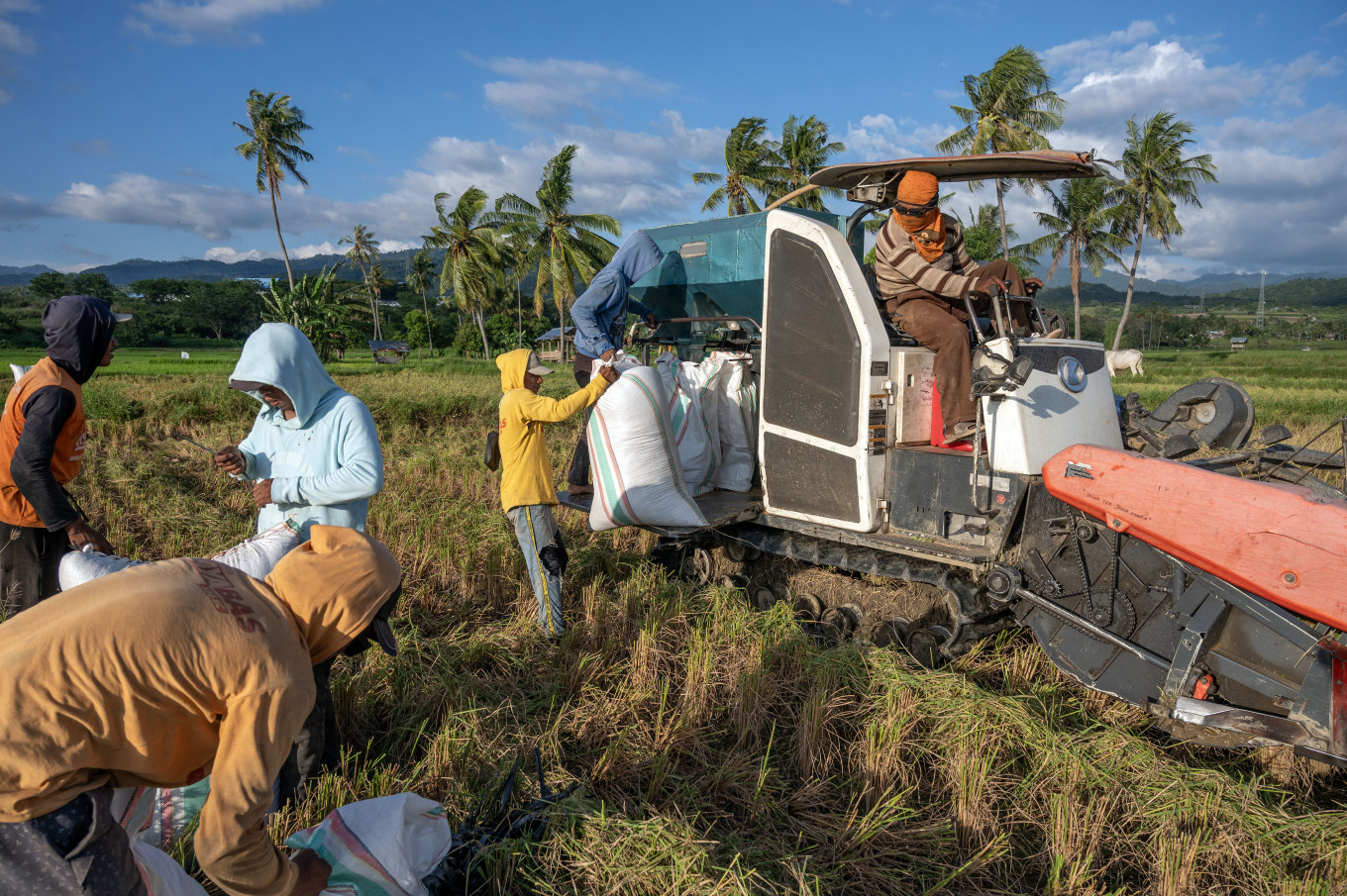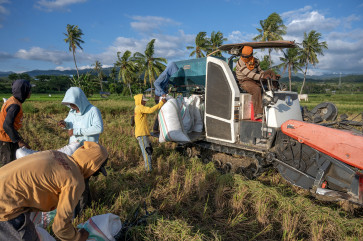Popular Reads
Top Results
Can't find what you're looking for?
View all search resultsPopular Reads
Top Results
Can't find what you're looking for?
View all search resultsIndonesia revives dream of becoming the world's food barn
Our farmers face a range of challenges such as low productivity, outdated farming tools and techniques, the worsening impact of climate change, and limited access to land, credit, agricultural services and government support.
Change text size
Gift Premium Articles
to Anyone
I
n his inaugural address, President Prabowo Subianto boldly declared that Indonesia could achieve food self-sufficiency and even become the world’s food barn within the next four to five years. While this vision is ambitious, it is not new.
Unfortunately, it remains far from reality given the current state of our agricultural sector. Our farmers, both individually and institutionally, face numerous obstacles that make this goal almost impossible to achieve in such a short time.
Currently, food self-sufficiency in Indonesia remains more of an aspiration than an achievement. This is evident in the steady rise in food imports, which underscores the nation's continued dependence on foreign supplies and casts doubt on any immediate prospects for self-sustainability.
From January to September this year, Statistics Indonesia (BPS) reported a significant influx of key food imports, including rice, maize, soybeans and sugar. Rice imports alone amounted to 3.23 million tonnes, maize to 0.97 million tonnes, soybeans to 2.16 million tonnes and sugar to 3.66 million tonnes.
Compared with the same period last year, rice imports surged by a staggering 80.68 percent, maize by 44.97 percent and soybeans by 15.64 percent. These sharp increases highlight Indonesia’s growing reliance on imported food.
Even more troubling is our dependence on wheat, a food crop we cannot grow domestically. As of September, Indonesia imported around 9.19 million tonnes of wheat, a 20.35 percent increase from the same period last year. This dependence on imported wheat further deepens the nation’s vulnerability to global supply disruptions and threatens food security.
This year’s rice imports are expected to reach historic highs, a trend that coincides with a sharp decline in domestic rice production. According to recent BPS projections, rice production for food consumption will decrease by approximately 757,134 tonnes or 2.43 percent compared with last year, marking the second consecutive year of decline.
Your Opinion Matters
Share your experiences, suggestions, and any issues you've encountered on The Jakarta Post. We're here to listen.
Thank you
Thank you for sharing your thoughts. We appreciate your feedback.


















